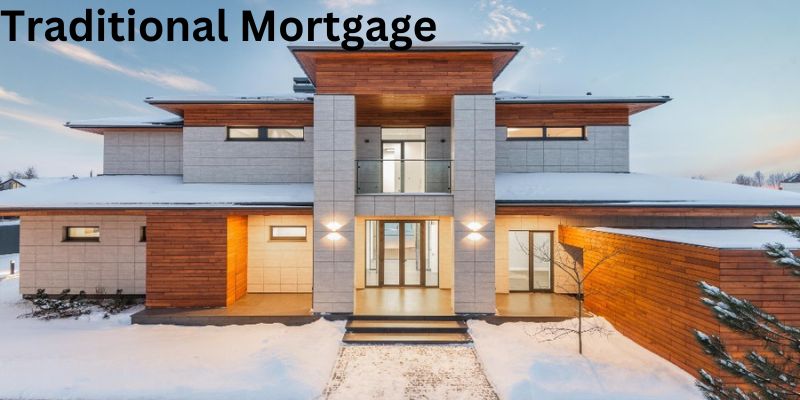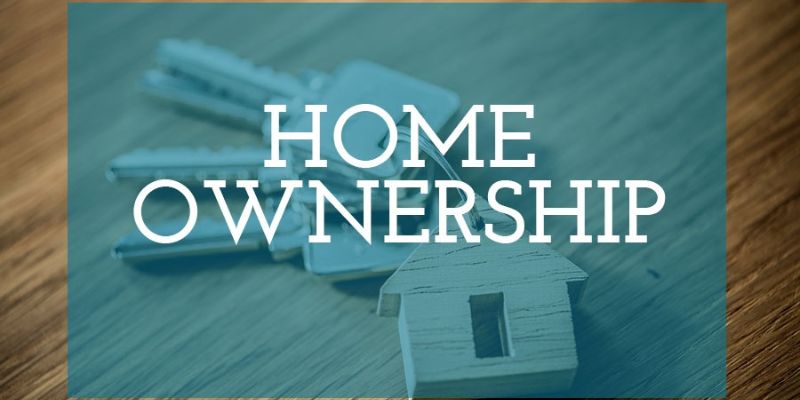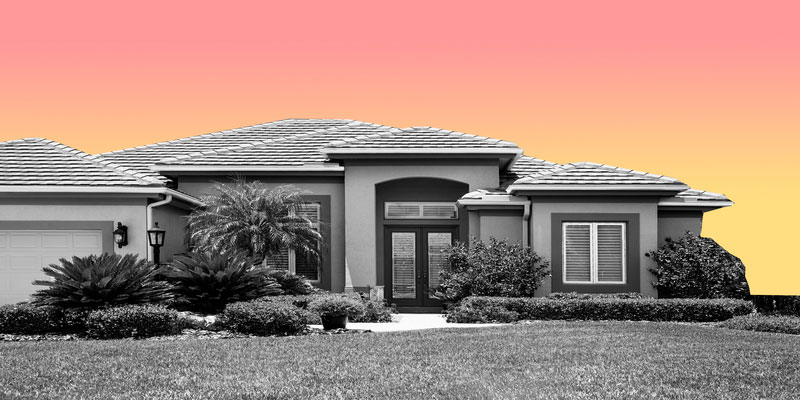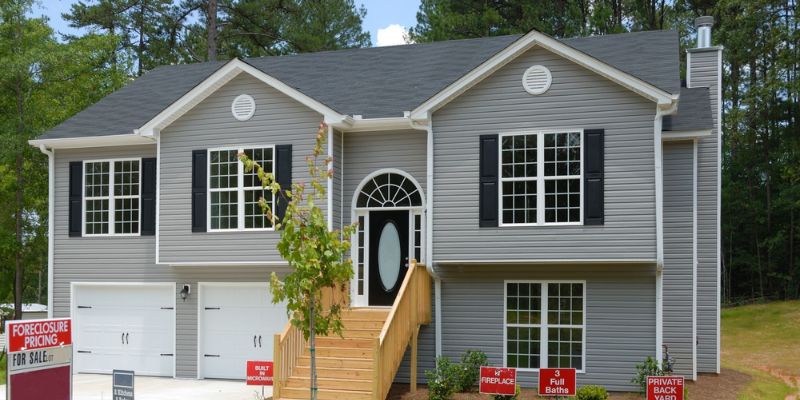What is a No-Closing-Cost Mortgage
Oct 09, 2023 By Susan Kelly
Are you looking for a way to save money on your next home purchase? One of the best options available for buyers is a no-closing-cost mortgage. This type of loan has grown in popularity over recent years as it allows borrowers to pay reduced upfront costs by rolling some or all of them into their monthly payments. No matter how small or large, closing costs can add up quickly, so this financing strategy can be an excellent choice for potential homeowners.
In this blog post, we’ll break down what exactly a no-closing-cost mortgage is, its potential benefits and drawbacks, and how you can apply one to buy your dream home. Let's get started!
Defining a No-Closing-Cost Mortgage
A no-closing-cost mortgage is a type of loan that allows you to pay reduced upfront costs for your home purchase. Instead of paying the closing costs out-of-pocket, they are included in the loan and added to your monthly payments. This financing strategy can be an excellent choice for potential homeowners looking to save money on their next home purchase.
When taking out a no-closing-cost mortgage, certain fees may still be associated with the deal that needs to be paid upfront. These include appraisal fees, credit report fees, and other miscellaneous costs associated with loan processing. However, these fees are generally much lower than what you would have to pay if you take on a traditional mortgage with closing costs.
In return for taking on the loan, lenders usually offer borrowers a slightly higher interest rate as part of the no-closing-cost loan agreement. This helps offset some of the costs that would have Been incurred if you had paid all closing costs upfront. It’s important to factor in this increased interest rate when deciding whether or not a no-closing-cost mortgage is right for you.
What Are Closing Costs?
The different fees and expenditures involved while purchasing a home are known as closing costs. These include loan-related expenses including title insurance, underwriting fees, and recording fees. These expenses might cost anything from a few hundred dollars to several thousand, depending on where you live and the details of your loan arrangement. Therefore, if you want to minimise your upfront fees, you might think about getting a mortgage with no closing costs.
How Does a No Closing Cost Mortgage Work?
A no-closing-cost mortgage is a loan that allows you to pay reduced upfront costs for your home purchase. Instead of paying the closing costs out-of-pocket, they are included in the loan and added to your monthly payments. This financing strategy can be an excellent choice for potential homeowners looking to save money on their next home purchase.
When taking out a no-closing-cost mortgage, certain fees may still be associated with the deal that needs to be paid upfront. These include appraisal fees, credit report fees, and other miscellaneous costs associated with loan processing. However, these fees are generally much lower than what you would have to pay if you take on a traditional mortgage with closing costs.
A no-closing-cost mortgage works because the lender will cover some or all of the closing costs, and in return, they’ll increase the interest rate on your loan. This higher interest rate helps to offset some of the costs that would have been incurred if you had paid all closing costs upfront. It’s important to factor in this increased interest rate when deciding whether or not a no-closing-cost mortgage is right for you.
Pros And Cons Of No Closing Cost Mortgages
Pros
1. Lower upfront costs.
2. No need to come up with cash for the closing costs.
3. Easier budgeting – all expenses are rolled into your monthly payments.
4. Improved ability to qualify for a loan since your debt-to-income ratio is unchanged.
5. Allows more flexibility in negotiating other aspects of the loan agreement.
6. Can free up funds for home improvements or other purchases related to the home.
7. Potentially lower overall interest rate on the loan over time due to a longer repayment period (if applicable).
Cons
1. A higher interest rate than a traditional mortgage.
2. Possibility of paying more in the long run due to interest payments.
3. Limited ability to make extra principal payments outside your monthly payment.
4. Your lender may charge additional fees for no-closing-cost mortgages.
No-Closing-Cost Mortgage vs. Traditional Mortgage
No-closing-cost mortgages can be a great option for home buyers looking to save money on their purchases. However, it’s important to remember that the higher interest rate associated with this loan could cost you more in the long run.
It’s also important to compare your potential no-closing-cost mortgage with a traditional mortgage and evaluate which one makes the most sense for your financial situation. Ultimately, it’s best to speak with an experienced loan officer before making any decisions so they can help you find the best financing solution.
Traditional Mortgage
Pros
1. Lower interest rate than no-closing-cost mortgages.
2. Flexibility to make extra principal payments outside of your monthly payment.
3. Possibility of lower overall interest rate on the loan over time due to a shorter repayment period (if applicable).
Cons
1. Higher upfront costs are associated with closing costs and fees.
2. Tight budgeting is required to determine the cash for closing costs.
3. Potential impact on debt-to-income ratio when qualifying for a loan, depending on the closing costs incurred.
Other Options
In addition to no-closing-cost mortgages and traditional mortgages, other financing options are available. These include adjustable-rate mortgages, FHA, VA, and USDA loans. Depending on your specific needs and financial situation, one of these solutions may be better than a no-closing-cost mortgage or traditional mortgage.
HFA Loans
HFA loans are designed for homebuyers who may need better credit or a large down payment but still want to purchase a home. HFA loans are offered through state Housing Finance Agencies, typically offering low-interest rates, no-closing-cost mortgages, and other incentives.
Other HFA Homeownership Programs
In addition to HFA loans, other homeownership programs offered through state Housing Finance Agencies may be of interest. These include down payment assistance, loan forbearance and modification programs, and tax incentives. So it’s important to explore all your options before deciding which type of mortgage is best for you.
By researching and comparing different types of mortgages, you can make sure you find the right financing solution for your needs. Whether it’s a no-closing-cost mortgage or a traditional mortgage, exploring these options can help you save money in the long run on your next home purchase.
FAQs
What is a zero-cost mortgage?
A zero-cost mortgage is a type where the lender pays all of the closing costs associated with the loan. In return, they will increase your interest rate on the loan to cover these costs.
What is the primary purpose of closing costs?
The primary purpose of closing costs is to cover fees associated with processing the loan, such as appraisal and credit report fees. These costs can add up quickly, so a no-closing-cost mortgage can be an excellent choice for potential homeowners looking to save money on their next home purchase.
Are there other types of mortgages available?
Yes, other types of mortgages are available in addition to no-closing-cost and traditional mortgages. These include adjustable-rate mortgages, FHA loans, VA loans, USDA loans, and HFA loans. Speak with an experienced loan officer before making any decisions so they can help you find the best financing solution for your needs.
Conclusion
No-closing-cost mortgages can be a great option for home buyers looking to save money on their purchases. By rolling some or all of the closing costs into your loan, you can avoid paying them upfront and spread out the costs over the life of your loan. However, it’s important to factor in a higher interest rate when deciding whether or not this type of loan is right for you. It’s also important to compare your potential no-closing-cost mortgage with a traditional mortgage and evaluate which one makes the most sense for your financial situation.
-
 Know-how Jan 13, 2024
Know-how Jan 13, 2024Review Of Hippo Homeowners Insurance
Hippo Homeowners Insurance is an online provider of many types of protection, such as homeowners, flood, and liability policies. Customers may manage their policies, submit claims, and access a network of reputable service providers using the company's user-friendly digital platform, which leverages intelligent algorithms to deliver customized coverage options at competitive pricing. Most of Hippo's reviews are excellent, with users complimenting the service's intuitive interface, low prices, and wide range of available protection plans.
-
 Banking Jan 16, 2024
Banking Jan 16, 20245 Best Credit Cards That Offer Free Checked Bags
If you want to pick the right card to make your trip smooth, find the best credit cards that let you check the bags for free
-
 Mortgages Oct 09, 2023
Mortgages Oct 09, 2023What is a No-Closing-Cost Mortgage
Get in-depth information on one of the best financing strategies available for homeowners - the no-closing-cost mortgage. Learn about its advantages, disadvantages, qualifications, and more.
-
 Know-how Dec 01, 2023
Know-how Dec 01, 2023Understand: What to Know About Inheriting a Home
ore than just money or property is at stake when you inherit a home. As a homeowner, you'll have more financial and legal obligations after receiving an inheritance. This could lead to a problematic emotional reckoning and negotiations with siblings and other heirs.
